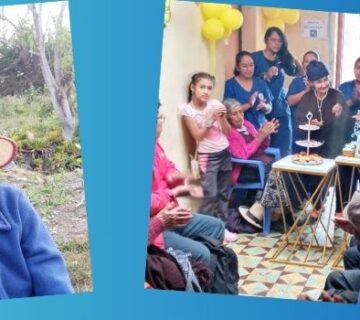The Word of Life of August 2022 asks us to always forgive. When we come before God – in the liturgy or in prayer – we should be in harmony with everyone. As Pope Francis says, we cannot go for a rest if there is disagreement with our brothers or sisters.
Jesus uses almost an exaggeration in order to emphasize the importance before God of complete harmony among Christians, who are brothers and sisters to one another. Therefore, he says that if you are about to offer your sacrifice and you remember that any kind of conflict separates you from your neighbour, you should interrupt your sacrifice and go first to reconcile with your neighbour. The offering of the sacrifice – and for us Christians this means our taking part in the liturgy – would risk being an empty act if there is a lack of unity with our brothers and sisters. The primary sacrifice that God expects from us is the effort to always live in harmony with everyone.
With this exhortation, Jesus is not proposing anything new or different from what was said in the Old Testament. …
However, there is something new here and it lies in the fact that Jesus says that we must always take the initiative to ensure that constant harmony and fellowship is maintained. Therefore, he urges us to live the commandment of love of neighbour in a radical way. In fact, he does not say: ‘If you remember having offended your brother or sister’, but rather, ‘If you remember that your brother or sister has something against you.’ For Jesus, the very fact that we remain indifferent about any disharmony with our neighbour – even if we ourselves are not responsible for this disunity – is already a reason for not being acceptable to God and, indeed, being rejected by him.
So, Jesus wants to put us on our guard not only against a violent outburst of hatred toward others, but also against any language or attitude that in some way denotes a lack of attention or love for our brothers and sisters. …
We should try not to be superficial in our relationships, and instead search our heart carefully, into its most inner recesses, to be sure that we have eliminated even the slightest attitude of indifference or lack of generosity, every attitude of superiority or any intentional neglect of others.
In everyday life, we can repair any discourtesy or display of impatience with an apology or a friendly gesture. If at times this isn’t possible, what counts is to radically change our interior attitude. Any instinctive rejection of our neighbour needs to be replaced by an attitude of welcome, of full and total acceptance of the other, of boundless mercy, of forgiveness, of sharing, of attention to their needs.
If we do this, we can offer God all the gifts we want. He will accept them and take them into account. Our relationship with him will grow deeper and we will experience true union with him, which is our happiness, both now and in future.
Chiara Lubich
(Chiara Lubich, in Parole di Vita, [Words of Life] Città Nuova, 2017, pp. 282/3)


 Italiano
Italiano Español
Español Français
Français Português
Português




Non basta aver fede (la lampada), occorre fare tanti atti d’amore suggeriti dalla fede. L’amore donato è l’olio della lampada che è personale e non si può dare agli altri.
Non basta fare qualcosa solo all’ultimo momento. Occorre una vita spesa per amore per essere pronti per lo sposo ed entrare con Lui alle nozze. Non lasciamoci sfuggire nessuna occasione per amare tutti come ci dice il comandamento dell’amore.